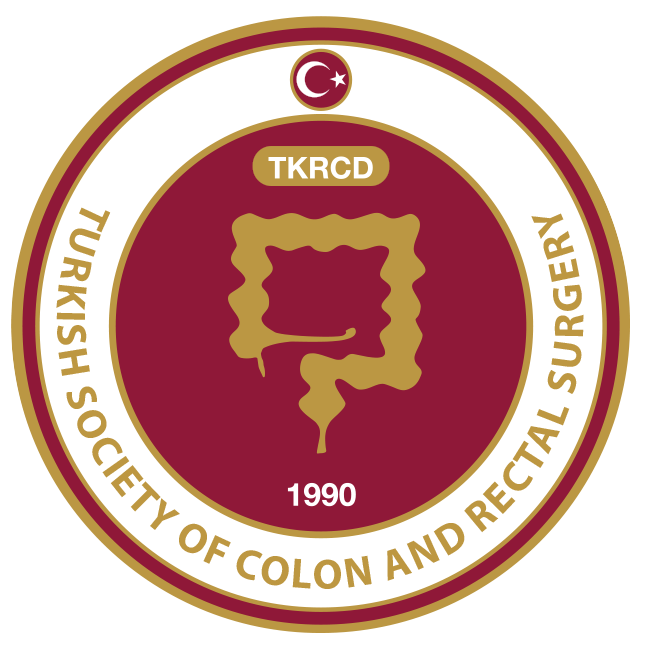ABSTRACT
The swallowing of foreign bodies is generally accidental among adult population; most common foreign bodies are food scraps and dentures. Foreign bodies that can pass through the ileocecal valve are removed by defecation unless the presence of an underlying cause of colonic obstruction. The impaction of a foreign body into the colonic wall and the formation of colonic obstruction is a rare condition which might mimic malignancy. Segmental colon resection was performed to a 45-year-old male due to unnoticed swallowing of a denture approximately 4 months ago that resulted in colonic obstruction mimicking colon cancer in splenic flexura. As this is a rare condition, we aimed to present this case report.
Introduction
Foreign body ingestion is a condition that is frequently seen in children and psychiatric patients. The vast majority of swallowed foreign bodies paa through the digestive system without causing any significant complications.1 In adults 1.5% of the swallowed foreign bodies are dental prosthetic materials.2,3 The colon, with its’ wide diameter and increased amount of solid material it contains, is an organ that foreign bodies can pass along easily without causing any problems after they pass ileocecal valve.4 However in cases of coexisting malignancies or when multiple foreign bodies are swallowed, colonic obstruction requiring a surgical intervention may be necessary.5,6 We aimed to present a case of surgical resection due to an obstruction in splenic flexura caused by a swallowed dental prosthesis 4 months ago.
Discussion
The foreign bodies frequently attach to the bowel wall and cause perforation at anatomical locations where the intestinal lumen is narrowed and angled.1 The clinical findings differ depending on the anatomic location and developing complications; in the presence of an obstructing foreign body causing an stricture in the colon, abdominal pain, nausea-vomiting, constipation, diarrhea are prominent symptoms.4 In our patient prolonged abdominal pain, attacks of constipation-diarrhea together with the weight loss raised suspicions of colonic malignancy.
In the case of foreign body swallowing, surgical intervention is necessary if complications such as perforation, fistula, abcess, obstruction have developed. The surgical intervention to be performed can differ depending on the type of the complication and localization of the foreign body.7 The vast majority of dental prosthesis that are swalled unintentionally are recognized after an upper gastrointestinal tract obstruction, passage of the foreign body to the large intestine is infrequent.5 One would expected that a foreign that can pass through the ileocecal valve would easily pass out through the large intestine. However, in cases of co-existing malignancies that cause a stricture in the bowel, the chances of the impacted material to cause a complication increases. Cases of colonic perforation that develop due to the sharpmetal tips of the dental prosthetic material have been more frequently reported.8
In conclusion, colonic obstruction due to foreign body swallowing is rare. Patients and clinicians may be anxious due to resemblance of the findings to a tumour obstruction. A detailed history taking and careful evaluation of the radiologic imaging can help finding correct diagnosis. Surgical intervention has an important role in definitive diagnosis and treatment.



